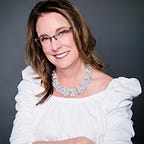It's called a lack of "whole object relations," that creates this difficutly abusive people have in relationships. For them, it can be impossible to reconcile in their mind that another person can be good, and not good at the same time. They have to make people "bad" to justify the abuse they deliver and to consider them to be "good" upsets that narrative. It's a part of the narcissistic personality disorder, but I've found that even in people who don't suffer the full-blown disorder will find it nearly impossible to accept some parts of a person, reject other parts, and still love them.
It's the sign of a young soul.
I've had to move away from my family in Wisconsin to protect myself and my kids from their need to judge, and see them as bad kids, or myself as an irresponsible parent. I've had to accept that they have no capacity to understand what we'd been through. When they try to put themselves in our shoes, all they come up with is, "well, that's not how I would have done things," while citing priviledges that they've had in their relationships and in their life that we absolutley do not have. They've had to make us "bad," spin everythinhg we do or say as proof to themselves that we are "bad," so they can live with their constant, nasty, unjustified labels they give to our character. It's beyond the scope of their ego to consider that we are loving, complicated, imperfect and sensitive beings who are just trying to figure it out.
When you are one who falls in the category of a sensitive soul, when you are intent on understanding people and their flaws while loving them anyway, this goes against the the younger soul's need to keep things simple, black and white, good and bad, and they don't know what to do with that so they get ugly.
It can hurt immensely, but it's why you're here, why you have the family you have that hurts you so, is because it's your life's inner work to experience the pain, make a pact to do your damndest to not be unloving, and to learn the difference between conditional and unconditional love.
This is what makes you the beautiful soul that you are, Walter. I have to work at finding gratitude for this, myself, but the more I do, the easier it gets, and I can see you're there, too.
Excellent article!
